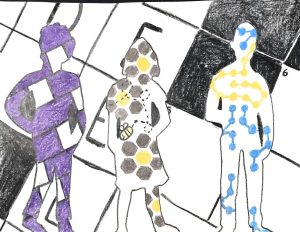Season 4 of “The Crown” Triumphs
Strong Performances in the Royal Drama’s Best Installment So Far
December 22, 2020
*TW//: mild description of depicted eating disorder
Netflix released its fourth season of royal drama, The Crown, on November 15th, 2020, and it certainly upholds the standard of stunning cinematography and nuanced performances set by the previous seasons. The much-anticipated introduction of cultural titan Princess Diana (played with uncanny resemblance by Emma Corrin) and Britain’s first female Prime Minister, Margaret Thatcher, (portrayed by Gillian Anderson) brings the series to new heights. The show also continues to paint a compellingly soapy and intimate portrait of the royals, and even more so than in season three, it is not a flattering one.
The two central trajectories of the season, Diana’s and Thatcher’s, are grand, melancholic, and at times wickedly funny. Anderson plays Thatcher with a mixture of strained self-control and austerity undercut with pain, modeled in the absolute conviction to her cause and ideology, as well as her profound anxiety. Her meetings with Olivia Colman’s Queen Elizabeth are a highlight of the season, as the two carefully attempt to reconcile deep differences within their shared experience of being a female in a position of great influence. Their portrayals of struggle with imbalances of power, beliefs, and class are a treat for the watcher.
Corrin’s Diana dazzles, full of impish charm, youthful optimism, and a deep tenderness that comes through even in her moments of agony. We watch her being inspected as a potential wife to Prince Charles (played with brilliance by Josh O’Connor) and quickly ushered into a marriage with a future king—over ten years her senior—whom she barely knows. Previously a somewhat sympathetic character, O’Connor’s Charles descends into jealousy, rage, and entitlement as he is weighed down by the cruelty of his family and inflicts his wounds back onto Diana. This weight manifests physically, as Charles’s posture, along with his marriage, deteriorates over the course of the season. The depiction of Diana’s bulimia is a breakthrough for how eating disorders are portrayed onscreen, avoiding the common pitfalls of glamorization and victimization. The scenes of Diana binging and purging as a response to her loneliness and loss of control are hard to watch, but never patronizing or without nuance. Corrin captures the dichotomy of eating disorders as both a security blanket and cage with seamless finesse.
We watch Diana come into her own as a public figure and as an adult (she is only eighteen when first introduced), basking in international adoration and mountains of fan mail to console herself as she faces an intensely isolating marriage and existence within the royal family. Her iconic charm and complex vulnerability finally come into focus.
As for the Queen and the rest of the royals, the season extends less sympathy than before, painting them with hard edges and increasingly stuffy alienation from the economic struggles and everyday experiences of citizens of their country. They are, however, consistently and intensely human; their coldness does nothing to obstruct the complexity of their narratives or unique personal sufferings within the institution they all ultimately serve. The Queen, in particular, is reluctant to offer any compassion to her family’s various troubles, which is played for irony alongside her concern about the Prime Minister’s “uncaring” personality.
The season touches upon several key historical events, from the Irish Republican Army bomb that kills Lord Mountbatten, to the war over the Falkland Islands, to Thatcher’s controversial opposition to sanctions during South African apartheid. However, these iconic events are used sparingly, mentioning only what is necessary to drive the development of, and conflict between, the central characters. Sadly, this is Colman and much of the current casts’ final season due to the time jumps of the show, but at least it is a tour-de-force of a sendoff.










